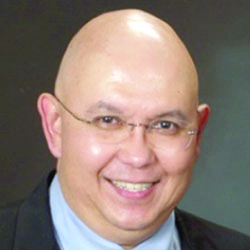 |

|
What Homeschoolers Need to Know About Academic Talent Searches
By Dr. Kuni Beasley
Printed in Practical Homeschooling #116, 2014.
 Find out what talent searches are, what ones are available, and how they can benefit homeschoolers.
Find out what talent searches are, what ones are available, and how they can benefit homeschoolers.

|

|

If
you have an ambitious, advanced student, Talent Searches can open the door
to greater opportunities.
But every year, thousands of bright, talented students miss opportunities to
demonstrate their advanced academic abilities and are not able to access the
resources and advanced programs to develop their talents and abilities.
This is even more prevalent with homeschoolers, who often do not have access
to information about such programs and don’t know where to get it.
So here’s a “heads up” on some of the national-level
programs for ambitious, advanced students.
Four Regional Programs
There are four major academic talent-search programs in the US. Three are
sponsored by universities (Duke, Northwestern, and Johns Hopkins) and one is
sponsored by a non-profit educational institution, the Center for Bright Kids
(CBK).
Although each nominally services a region of the country, only the Center for
Bright Kids specifies it serves seven states in the Rocky Mountain area:
Colorado, Utah, Nevada, Idaho, New Mexico, Montana, and Wyoming. The others do
not specify a particular region, though other literature indicates that Duke
University serves the Southern, Gulf Coast, and Plains states, Northwestern
University serves the Northwest and North Plains states, and Johns Hopkins
University serves what’s left, from the East Coast, to Alaska, to
Hawaii, and also offers its program internationally.
With the university-sponsored programs, it may not matter where you live.
Indeed, I helped an American homeschooler in Baku, Azerbaijan (on the shores
of the Caspian Sea in Central Asia), with the Duke program. Location
didn’t seem to be an issue.
Duke TIP
The best known program is the Duke Talent Identification Program, otherwise
known as “Duke TIP” (
tip.duke.edu). Sponsored by Duke
University in Durham, NC, several programs are available, most directed to
grades 3–8. However, it is the 7th-grade program that garners the most
attention, because of the high level of competition and the national
recognition it that goes with it.
I have been personally involved in Duke TIP for twenty years and even am on a
first-name basis with some of the staff.
To qualify, a 7th grader must be in the top 5% of the grade level based on a
standardized test score. Once qualified, the student takes an SAT or ACT, the
same one taken by high-school students, on the same day, at the same place.
Students who qualify are awarded certificates, and regional award ceremonies
are conducted to recognize those who scored high on the tests. Medals are
presented to those who score higher than 50% of seniors (State Recognition)
and higher than 90% of seniors (Grand Recognition). Grand Recognition students
are invited to attend the Grand Recognition ceremony at Duke University.
Duke students have access to advanced educational programs, guidance, and
resources that include summer residential programs at Duke University,
independent learning products, independent learning courses, the eStudies
Distance Learning Summer Program, and Scholar Weekends at the university.
Johns Hopkins Center for Talented Youth
Johns Hopkins University in Baltimore, MD, sponsors the Center for Talented
Youth (CTY) (
cty.jhu.edu/about/) that identifies and develops the
talents of advanced K–12 students worldwide.
Like Duke, Johns Hopkins uses the SAT and ACT. Plus, Johns Hopkins uses two
other tests: the School and College Ability Test (SCAT) and the Spatial Test
Battery (STB) developed by CTY. Also, Johns Hopkins has one program for both
7th and 8th graders in their Talent Search. (Duke has a separate 8th grade
“TIP Option”). Johns Hopkins uses the SCAT for grades 2–8
and the STB for grades 5–8.
Similarly to the Duke program, all participants receive a certificate. Those
who meet or exceed certain scores attend regional Awards Ceremonies, and top
scorers are invited to the Grand Ceremony to receive a medal at the
university.
For qualifiers, Johns Hopkins offers summer programs at the university and in
Hong Kong, plus CTY online courses. Their “Family Academic
Programs” are a unique feature that includes the parents and are open to
all participants.
The Johns Hopkins Talent Search program is available internationally to
students and offers seminars and learning opportunities around the country.
Northwestern University’s Midwest Academic Talent Search
Northwestern University in Evanston, IL, near Chicago, sponsors the Midwest
Academic Talent Search (NUMATS) through its Center for Talent Development
(CTD) (
www.ctd.northwestern.edu/) for high-performing students in grades
3–9.
Like Duke and Johns Hopkins, Northwestern uses the SAT and ACT, but expands
its use to grades 6–9. In ?addition, Northwestern uses the ACT’s
EXPLORE test, usually administered to 8th graders, as the test for grades
3–6.
Like the previous programs, Northwestern awards certificates to all
participants, has regional awards ceremonies for those who meet or exceed test
standards, and hosts an award ceremony on the Northwestern campus for the top
scorers. In addition, first-place scorers receive a scholarship to all CTD
programs!
Like the other programs, Northwestern provides summer and online programs, and
many other programs to participants and awardees. One special item for
Northwestern participants is the ?NUMATS Tool Box, a secure website where
schools and families can access “a wealth of resources.”
Center for Bright Kids
Like Northwestern, CBK uses the SAT and ACT for grades 6–9 and the
EXPLORE test for grades 3–6 to identify top academic talent. Like the
other programs, CBK offers a range of summer and online programs to its
participants, and hosts programs on the Colorado School of Mines campus.
Steps to Success
There is a craft to preparing, packaging, and positioning students to become
eligible and qualify for these programs.
There are two stages in each of the four programs: (1) establishing
eligibility and (2) qualifying.
Over the last twenty years, I have used a four-step process to assist and
empower ambitious advanced students.
-
Pre-Eligibility. Each program uses a nationally-normed test to determine if
a student is in the top 5–10% (based on the specific program criteria)
of the student’s grade. Each program lists their approved tests and, in
some cases, will accept an administrator’s recommendation or even a
letter from a homeschool group coordinator to establish eligibility.
I believe testing is the most valid means of establishing eligibility. I
recommend you preview the acceptable tests and choose which one you will use.
I have an affinity to the Iowa Test of Basic Skills, because it is relatively
easy to administer and readily available. Homeschool parents can administer
the test themselves or have a homeschool organization member proctor it. The
Iowa Test is available through BJUP’s Testing and Evaluation service
( www.bjupress.com/testing/).
The key is to understand what is required to become eligible. In most cases,
students need only to achieve the percentile ranking in one sub-test to become
eligible. On the Iowa Test, the required percentile score in only one
section—such as Vocabulary—is all that is required to become
eligible.
Choose the test you will use and get practice versions of the test for your
student to use to prepare.
-
Eligibility. Simply have the student tested and scored. If the student
doesn’t achieve the eligibility score, nothing prohibits a retest.
I would recommend testing early in the school year, and retesting every
quarter. Most tests have quarterly norms and the student should be scored
against the quarterly norms.
Because most of my experience has been with Duke, we begin this process in the
6th grade for the 7th grade program.
-
Pre-Qualification. The student will have to take an SAT, ACT, or some other
standardized test that is above their grade level.
I suggest you begin testing early, especially for the SAT and ACT. We have 6th
graders take one SAT and one ACT per semester (yes, the actual test at a
testing site). This way the student gains “Test Maturity” and
becomes a veteran test taker.
NOTE: Registering for SAT and ACT is somewhat cumbersome because you have to
register by mail. Students under 13 cannot register online. You may have to
contact the SAT and ACT to get a mail-in registration form.
After the student has taken 2–4 tests, we begin an SAT/ACT prep program
focused on test-taking techniques, using inductive and deductive logic to
answer questions. Our system enables students to score higher in math, even
though they have not taken Algebra or Geometry, because we use logical methods
instead of academic knowledge.
-
Qualification. When you register for these programs, you will have to
select a specific test and a specific test date. For the Duke TIP, we always
have the students take the January SAT or the February ACT. These are the last
tests offered in the program and we have time to prepare the student. We have
the student take one SAT and one ACT in the fall, usually the September ACT,
because we can order the Test Information Release (TIR) that contains the
actual test and the actual student answers—there is no better training
resource than the actual test. We recommend the October SAT for the same
reason. We can order the Questions and Answer Service (Q/A) and get the test
and the student’s answers. This will help us determine which test to
take and we have live training material on hand.
Do this and the student will have a significant advantage over others taking
the test—most of whom have never even seen an SAT or ACT until the day
they test.
States Served By Each Talent Search
NOTE: Except for CBK, if you live in a state outside the “served”
area for a given program, they might still let you enter that program.
- Center for Bright Kids: CO, ID, MT, NV, NM, UT, WY
- Duke: AL, AR, FL, GA, IA, KS, KY, LA, MO, MS, NC, NE, OK, SC, TN, TX
- Northwestern: IL, IN, MI, MN, OH, ND, SD, WI
- Johns Hopkins: AK, AZ, CA, CT, DC, DE, HI, MA, MD, ME, NH, NJ, NY, OR, PA,
RI, VA, VT, WA, WV and international students
|
 |
 |